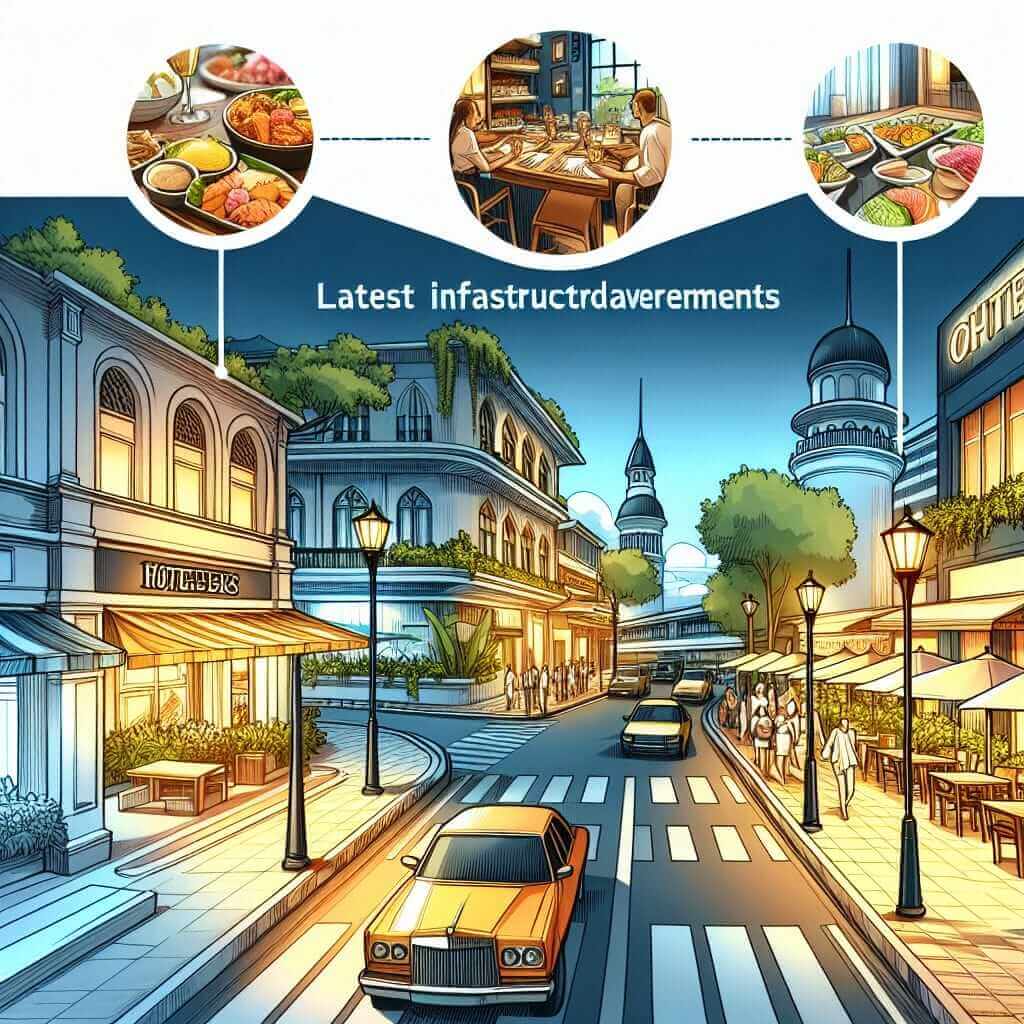Global tourism has become an integral component of modern economies, and its influence on local economies is a topic that frequently appears in the IELTS Writing Task 2. Understanding the implications of global tourism can help IELTS test-takers craft well-rounded essays that demonstrate critical thinking and a thorough comprehension of the subject. In this article, we will analyze the influence of global tourism on local economies through various angles and provide a comprehensive sample essay.
Potential IELTS Writing Task 2 Prompts on Global Tourism:
- To what extent does global tourism impact local economies?
- Discuss the benefits and drawbacks of global tourism for local communities.
- How can local economies maximize the benefits and minimize the disadvantages posed by global tourism?
Selecting and Analyzing a Prompt
Let’s choose the first prompt for a detailed analysis and sample essay:
“To what extent does global tourism impact local economies?”
Analyzing the Prompt
To respond effectively to this prompt, one should:
- Define the Scope: Identify what aspects of the local economy you will discuss (e.g., employment, infrastructure, culture).
- State an Opinion: Decide whether the impact is predominantly positive, negative, or mixed.
- Use Examples: Provide specific instances to illustrate the points made.
Sample Essay
Prompt: “To what extent does global tourism impact local economies?”
Sample Essay:
Global tourism undeniably plays a pivotal role in shaping local economies around the world. Its influence can be observed in a variety of economic spheres, ranging from employment and infrastructure development to cultural preservation and environmental management. This essay will discuss the extent of global tourism’s impact on local economies, weighing both its positive contributions and the challenges it presents.
To begin with, one of the most significant benefits of global tourism is the creation of job opportunities. Tourism employs a wide range of professions, from hotel staff and tour guides to transportation providers and small business owners. For instance, in countries like Thailand and Spain, tourism is a primary source of employment, often providing stable incomes for otherwise economically vulnerable populations. This influx of jobs not only alleviates poverty but also encourages skill development and entrepreneurship within local communities.

Furthermore, global tourism drives infrastructure improvements. The necessity to cater to tourists often leads to better roads, enhanced public transportation, and upgraded facilities. These developments, while primarily intended to serve tourists, also benefit local residents. For example, the expansion of airports and railways in Greece for the convenience of tourists has facilitated easier and faster travel for locals. Additionally, the revenue generated from tourism taxes is often reinvested into the community, funding public projects such as parks, museums, and cultural centers.
However, tourism is not without its drawbacks. One major issue is the potential for environmental degradation. The surge in visitor numbers can lead to increased pollution, habitat destruction, and strain on local resources. For example, popular destinations like Venice have grappled with rising levels of pollution, largely due to the sheer volume of tourists. This not only affects the local environment but also diminishes the quality of life for residents.
Cultural erosion is another concern associated with global tourism. While the tourism industry often markets a destination’s unique cultural heritage as a selling point, the influx of tourists can sometimes lead to the commodification and dilution of local traditions. An example can be seen in Bali, Indonesia, where traditional dances and rituals are often commercialized to cater to tourist expectations. This can result in the loss of cultural authenticity and a sense of community identity.
In conclusion, global tourism significantly impacts local economies, yielding both positive and negative outcomes. While it creates jobs, improves infrastructure, and brings in substantial revenue, it also poses environmental and cultural challenges. To maximize the benefits, it is imperative for local governments and stakeholders to implement sustainable tourism practices that mitigate adverse effects while promoting economic growth. Therefore, the extent of global tourism’s impact on local economies largely depends on how well these regions balance development and preservation.
Word Count: 418
Tips for Writing Essays on This Topic
Vocabulary and Grammar Notes
- Job Opportunities (n): Employment possibilities (ˈdʒɒb ˌɒpərˈtuːnɪtiːz)
- Infrastructure (n): Basic physical and organizational structures and facilities (ˈɪnfrəstrʌktʃər)
- Entrepreneurship (n): The process of starting and running one’s own business (ˌɒntrəprəˈnɜːrʃɪp)
- Environmental Degradation (n): The deterioration of the environment through depletion of resources or destruction of ecosystems (ɪnˌvaɪərənˈmɛntl ˌdɛɡrəˈdeɪʃən)
- Cultural Erosion (n): The loss of cultural heritage, practices, and identity (ˈkʌltʃərəl ɪˈrəʊʒən)
Key Considerations
- Balanced Argument: Ensure that your essay presents a balanced view, highlighting both advantages and disadvantages.
- Specific Examples: Strengthen your essay with specific examples that demonstrate your points clearly.
- Coherent Structure: Maintain a clear and logical structure, ensuring each paragraph flows seamlessly into the next.
Conclusion
In summary, the influence of global tourism on local economies is multifaceted and substantial. When preparing for the IELTS Writing Task 2, it is crucial to familiarize yourself with various aspects of tourism and its impacts. Practicing with prompts like the ones provided can enhance your ability to deliver structured, coherent, and insightful essays. For further practice, consider exploring related topics such as The Influence of Cultural Heritage on Tourism or The Influence of Cultural Festivals on Tourism.
By consistently refining your writing skills and expanding your knowledge on diverse topics, you will be well-prepared to achieve a high score in the IELTS Writing Task 2.